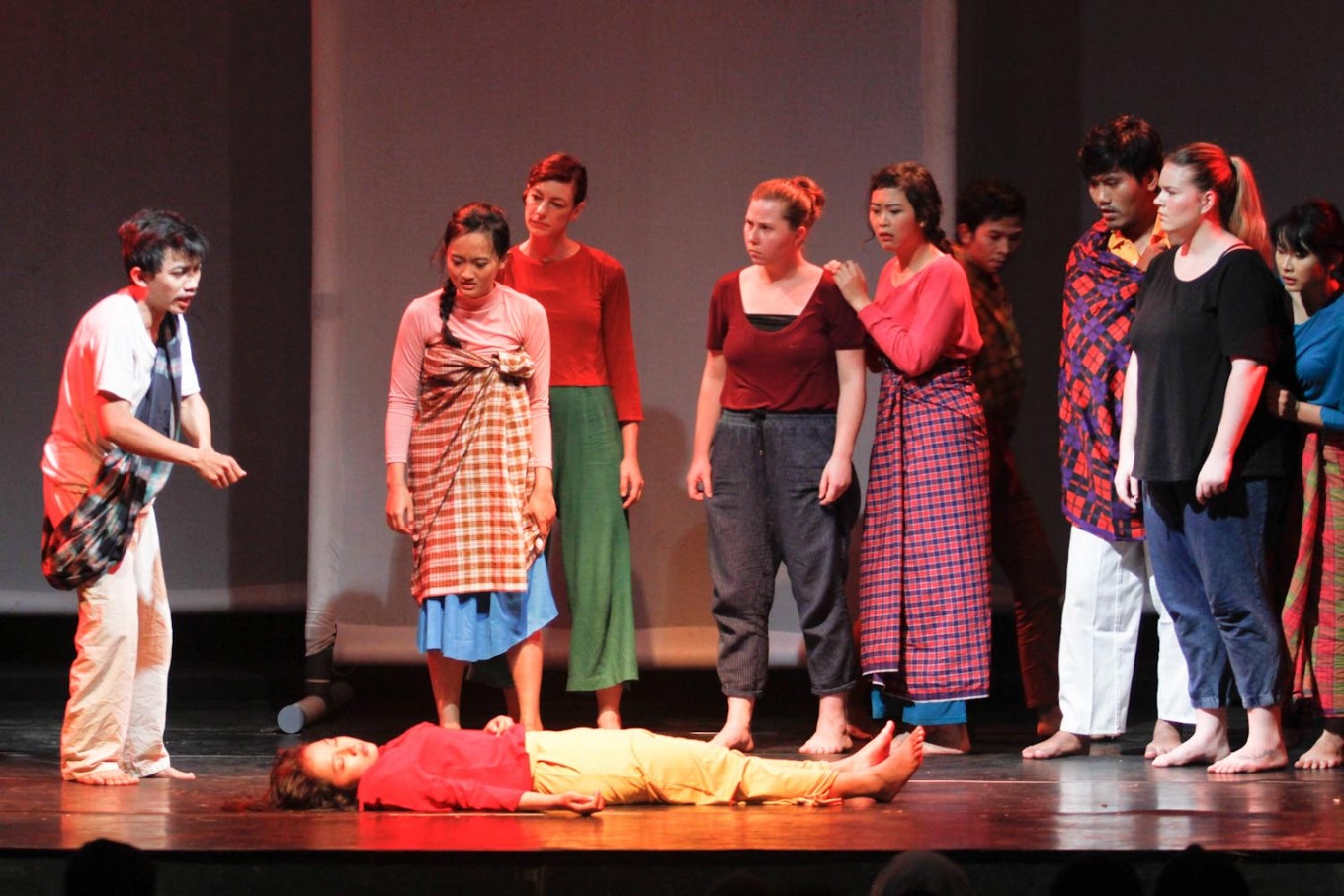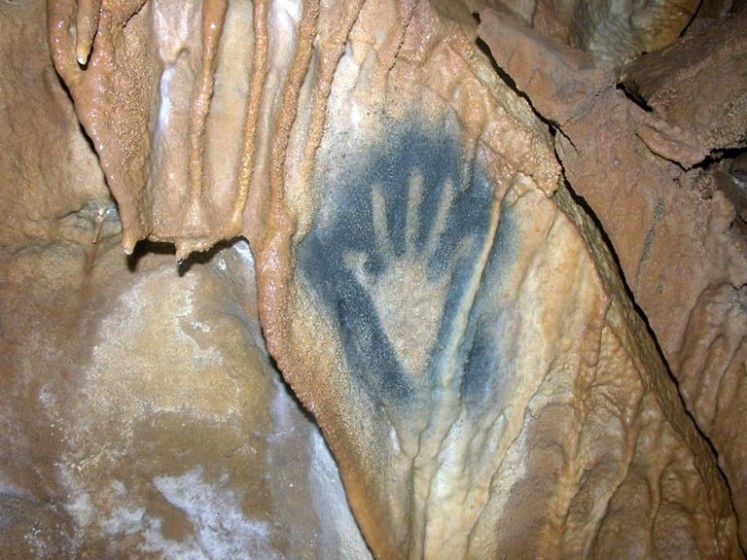Popular Reads
Top Results
Can't find what you're looking for?
View all search resultsPopular Reads
Top Results
Can't find what you're looking for?
View all search results14 actors, two countries, one stage
Change text size
Gift Premium Articles
to Anyone
"When I think of Indonesia, I think of colonialism, tropical jungles, beaches with crystal clear waters, extremism; also hospitality, drugs, the death penalty, the execution of Andrew Chan and Myuran Sukumaran, and how there’s so much tension between our governments and security issues," remarked the actors from La Trobe Student Theater and Film, Australia, when asked what their views on Indonesia.
Meanwhile, seven actors from Theater Lakon from the Indonesian Education University (UPI) in Bandung, West Java, also shared their opinion on Australia; how it is home to kangaroo steaks, it is where beers are cheaper than mineral water, lacking spicy sambal, snowing, there is no street congestion, the roads are friendly for pedestrians, it is hard to hear adzan (call to prayer) and quite an uncomfortable place for someone who wears hijab.
These views were highlighted during the performance of The Light Within a Night at UPI's Cultural Building on Feb. 14-15. A similar show was also performed at the Bentara Budaya Bali cultural center on Feb. 18-19.
The difference between local cultures and habits of the two countries became the main attraction in the 105-minute performance. Two directors, Bob Pavlich and Sahlah Mujtaba, were in charge of bringing together these 14 people from two countries.
Read also: 'Wayang Orang Bharata' strives to preserve traditional culture
The duo also combined similarities between the two nations. Pavlich, 58, chose to depict the tragedy of Lindy Chamberlain, who lost her child in Uluru, Australia, in 1980.
Lindy's daughter, Azaria, went missing while they went camping together with her husband, Michael Chamberlain. Lindy was convinced that Azaria had been attacked and kidnapped by a dingo. Meanwhile, the federal trial acknowledged Lindy as the one responsible for the incident. She was convicted and sentenced to life imprisonment until finally her name was cleared since no evidence was found that she had committed the crime.
Meanwhile, Mujtaba, 31, decided to tell the story of the Jamarun folklore originating from Cianjur, West Java. Jamarun was a farmer who found a woman's dead body while fishing. Since he was a stranger at the site, he was blamed for the death and was then convicted and sentenced to death. Thousands of butterflies are said to appear and cover Jamarun's dead body, followed by the smell of fragrance. The people soon felt sorry for wrongly accusing Jamarun.
These tragedies and uncertainties were gathered into a 28-scene show. Chayanda Nurhadi Hasan, 23, played himself and Jamarun. Blayne Welsh, who is of Aborigine descent, told of his origin in one scene and also portrayed Kanjeng Dalem, the ruler who handed down the death sentence to Jamarun.
“This sort of theater is quite popular; where the actors play themselves, as well as working with different images. There’s a lot of [these kinds of shows] in Australia,” said Pavlich.
The show's execution felt fresh; encouraging audiences to follow the dialogue more closely.
"It's quite challenging; we need to make many changes in order to attract viewers in Australia," said Mujtaba, referring to the theater's plans to perform in Menzies Theatre, La Trobe University Bundoora on March 6-8 and La Mama Courthouse, Australia, on March 16-19.
Read also: Theater show about Maluku's Run Island to be performed in New York
The difference of style and characteristics between Australia and Indonesia, especially in the theater discipline, resulted in a unique experience when watching the dual-language show. Australian actors are known to be strict with their dialogue while Indonesian actors tend to use improvisation.
"We have to free the actors in order for them to develop more since we tend to rely on speech," said Mujtaba.
The performance also succeeded in highlighting the attention given to cases involving Andrew Chan and Myuran Sukumaran, two Australian citizens who were found guilty of smuggling 8.3 kilograms of heroin to Indonesia. (kes)










